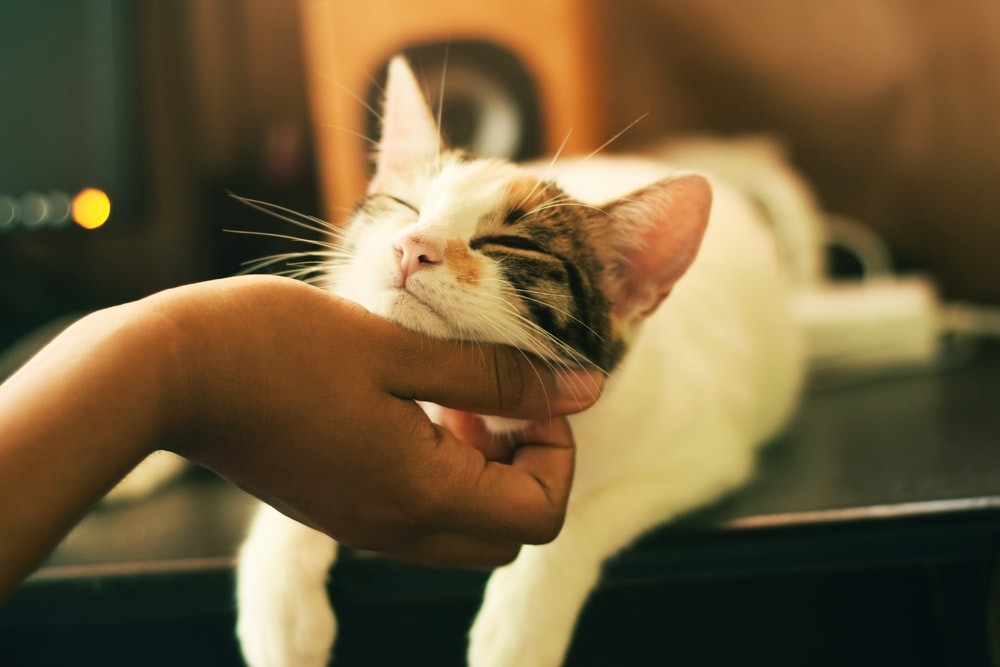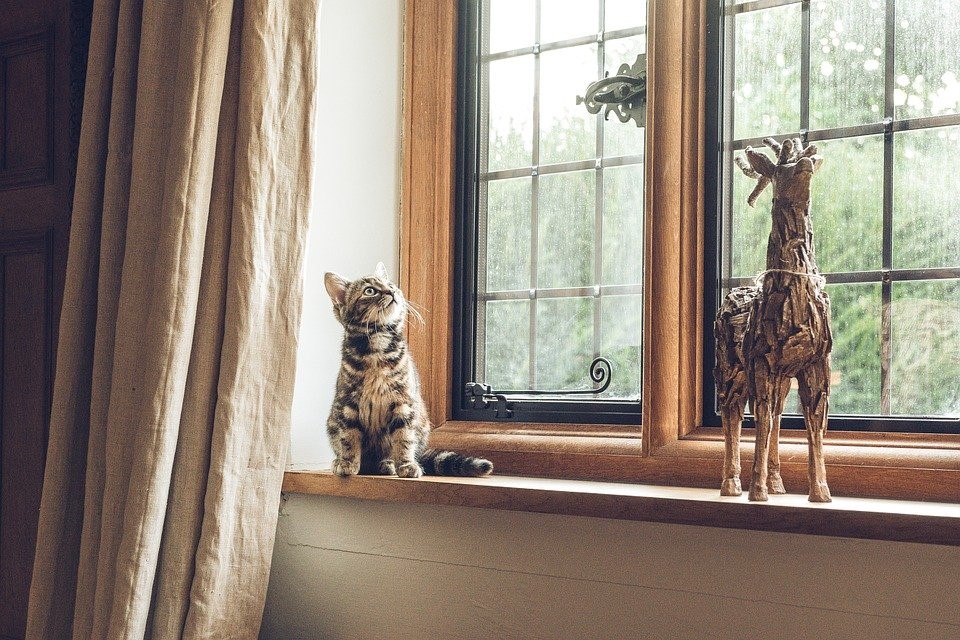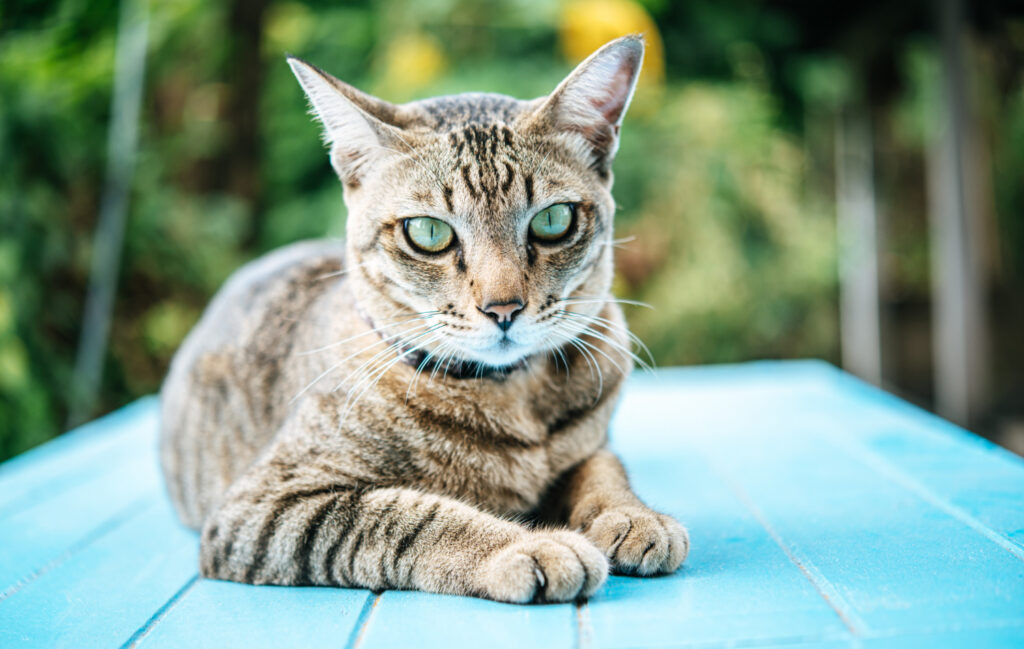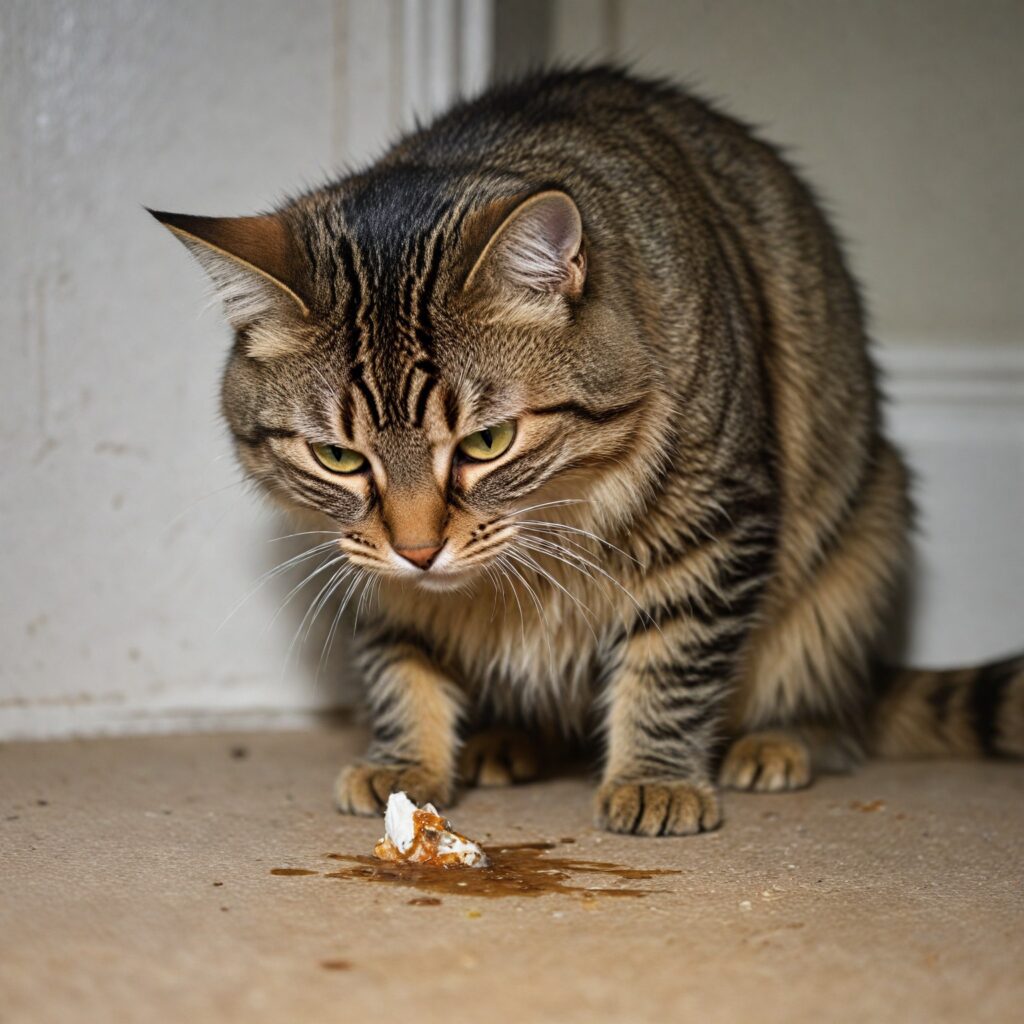We know that dogs are generally high maintenance pets and love to cuddle, while cats have a reputation for being aloof, stubborn, and playful. However, there are times when you will find your cat seeking more attention than normal, making you ask the question: “Why is my cat so clingy?”
How Do You Know Your Cats Is Depicting Signs of Clinginess?
Cats that are too needy or clingy can show this behavior in several different ways:
- They may demand their owner pet them very frequently.
- They may groom themselves excessively.
- They may want to be held and cuddled all the time.
- They may mew and cry out if they think you are not giving them enough attention.
- They may lick you excessively.
- They do not like to be left alone or like to see their owners leave the house.
All these signs may point to separation anxiety in cats.
What is Separation Anxiety in Cats?
Separation anxiety in cats may be due to chronic clinginess. This constant stress to be near you not just decreases the quality of life for your cat, but may also leave it vulnerable to illnesses.
In addition, the constant clinginess can make you pull away from your cat in annoyance and wear away your mutual bond and make your pet feel even more insecure and needy.
There is no exact cause of why a cat can sometimes depict excessively needy or clingy behavior. Every cat is unique and has a different way of coping with life changes and stressors, but your pet’s history and current environment can shine light on why your pet is so clingy.
What are Some of the Causes of Clinginess in Cats?
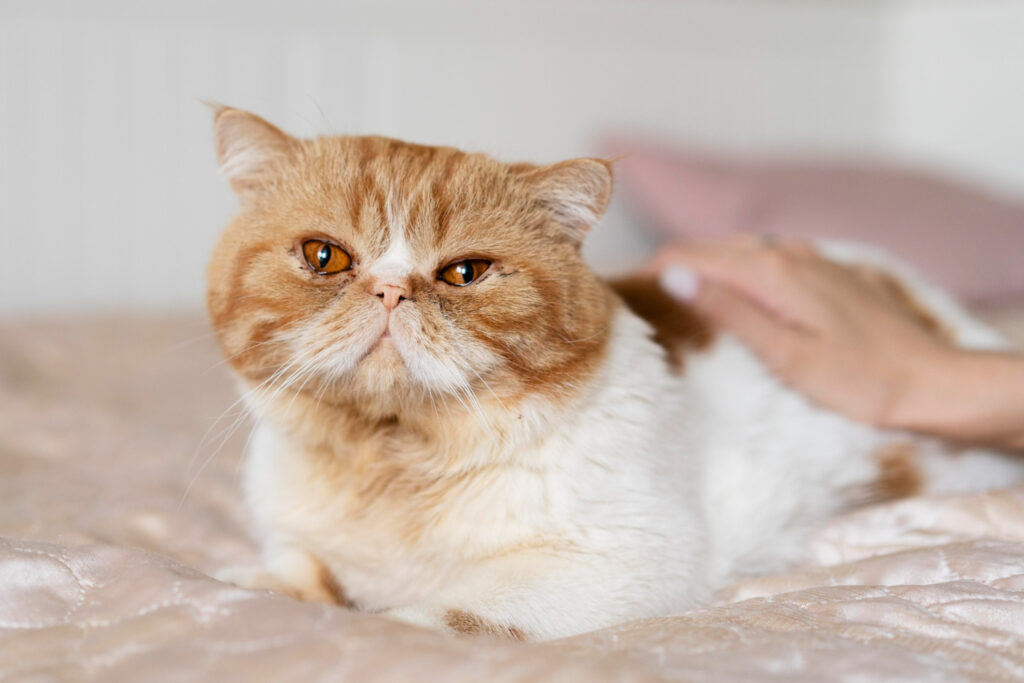
Cats that suffer from separation anxiety and suffer from clinginess may display reactive and protective behavioral signs.
If they are left alone, they may exhibit unusual behavior like constantly clawing on doors, chewing or scratching furniture, urinating and defecating outside the litter, or hiding away beneath the couch or inside a closet.
Some causes are given below:
Your Cat May Have Lost Its Mother: Cats that have been abandoned by their mothers or who have been orphaned at an early age cannot easily bond, which means they have difficulty adjusting in their earlier weeks. These cats may display signs of clinginess to their pet parents because of the lack of early nurturing.
Your Cat May Have Been Weaned Prematurely: Cats that were weaned from their mother’s milk too early may suffer from anxiety, which can later transform to clinginess.
Your Cat May Have Been Abruptly Removed From Its Littermates: Cats that have been removed from their littermates before they are 8 weeks old may have emotional issues, particularly if they were taken abruptly with no gradual weaning. This breaks the bond between your cat and its littermate, resulting in separation issues.
Your Cat May Have Been Abused in the Past: If you have taken a cat from a pound or a shelter, it may have been rescued from a home where it was neglected or abused. Cats from such places tend to be very needy, particularly to those people who show them care.
Your Cat May be Displaying Old Habits: If you are adopting a grown cat, it may have been trained to be clingy by their previous owner.
Your Cat May be Getting Old: If your cat has reached 11 years, it may start to experience vision and hearing loss. Not being able to use its essential senses may cause your pet to become more dependent on you and stay close to you so it may be aware of what’s happening.
Your Cat May be Upset by Changes in Routine: Cats like routine and changes in your home can be upsetting to them. Some changes that can make your cat cling to you may include a member of the family moving out of the home, the death of a human or pet, the arrival of a baby, bringing another animal into the home, changes in feeding and walking schedule and more.
SEE ALSO : Can Cats See Color?
You Cat May be About to Give Birth
Some cats may cling to you when they are pregnant or when they are about to give birth. Giving birth can be a stressful experience and if your pet is being needy, this means it trusts you and believes you can take care of its comforts.
Your Cat May be Bored: if your cat spends the day cooped up indoors and napping, it may want to get some exercise and may also show clingy behaviors towards other pets.
You Cat May be Sick: If your cat is suddenly displaying clinginess, it may be due to an underlying medical condition. In this case, it is important to take it to a vet.
How Do I Handle a Clingy Cat?
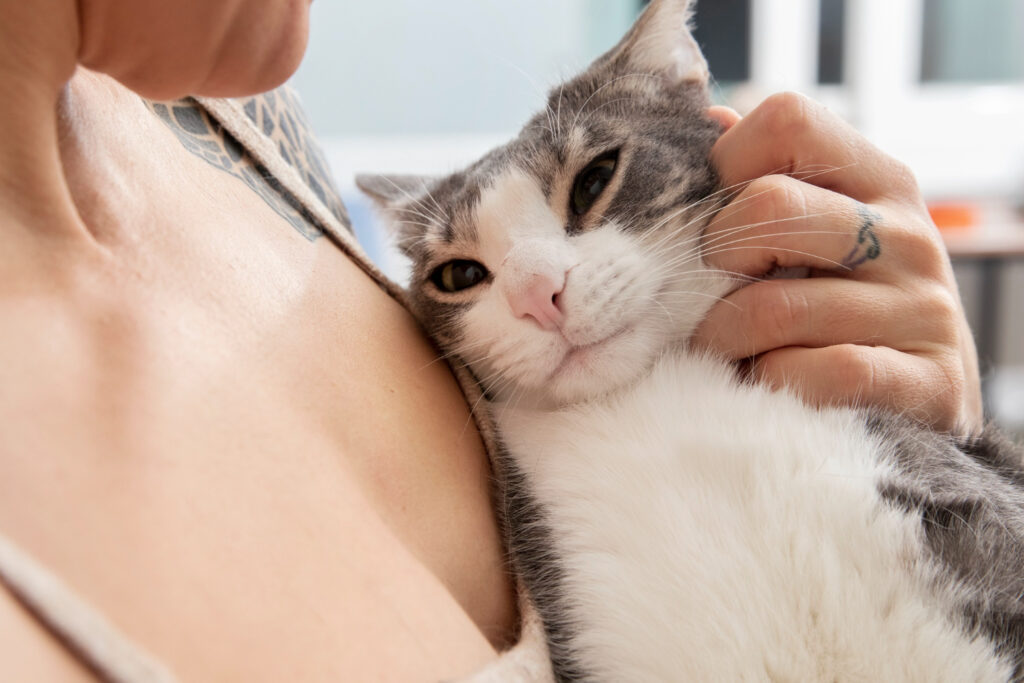
Although there are numerous reasons why your cat is being clingy, many of them can be solved with proper care and attention. Here is how you can do that:
- If your cat is newly adopted or is upset by any change, you can place its basket in your bedroom. This will make it feel secure. Once it has gained its confidence again, you can move its basket to some other place.
- If your cat is bored, you can create a safe environment outdoors by creating a barrier or enclosure in your yard so that your pet does not venture out and get lost.
- If your cat has been trained to be needy, you need to stop bowing to their whims. Remove your pet if it keeps jumping on certain objects like your books, computer, or phone. Keep repeating this action without a word. If they understand and stop this behavior, you may reward it with a small treat.
- If your cat is mewing, pawing, or scratching to get your attention, don’t instantly pet or cuddle it. Instead, move away from the place this behavior has taken place and then give it some attention. This lets cats become independent and prevents them from relying too much on you.
What Do I Do If I Think My Cat is Sick?
Your cat may become clingy if it is sick. If your cat seems lethargic or suddenly starts to act more needy than usual, you should get an appointment with your vet. Having a complete medical examination can help the vet diagnose any illness in your pet and prescribe proper treatment for them.
A behavioral therapist may give you advice on how to deal with your cat’s separation anxiety. There are certain medications as well that can help treat your cat’s illness, which may be the cause of the clinginess. If your cat is unduly anxious for another reason, your vet may prescribe it an anti-anxiety medication, which can help it with insecurity.
Bottom Line
A cat is an affectionate animal, but if it becomes so clingy that it causes a hindrance in your work, this means there may be something wrong with it. Whether you have a kitten or full-grown cat, most strategies will work on your pet if you treat it with care and compassion.
A cat that is happy and healthy will make a much enjoyable companion and a wonderful member of your home.
